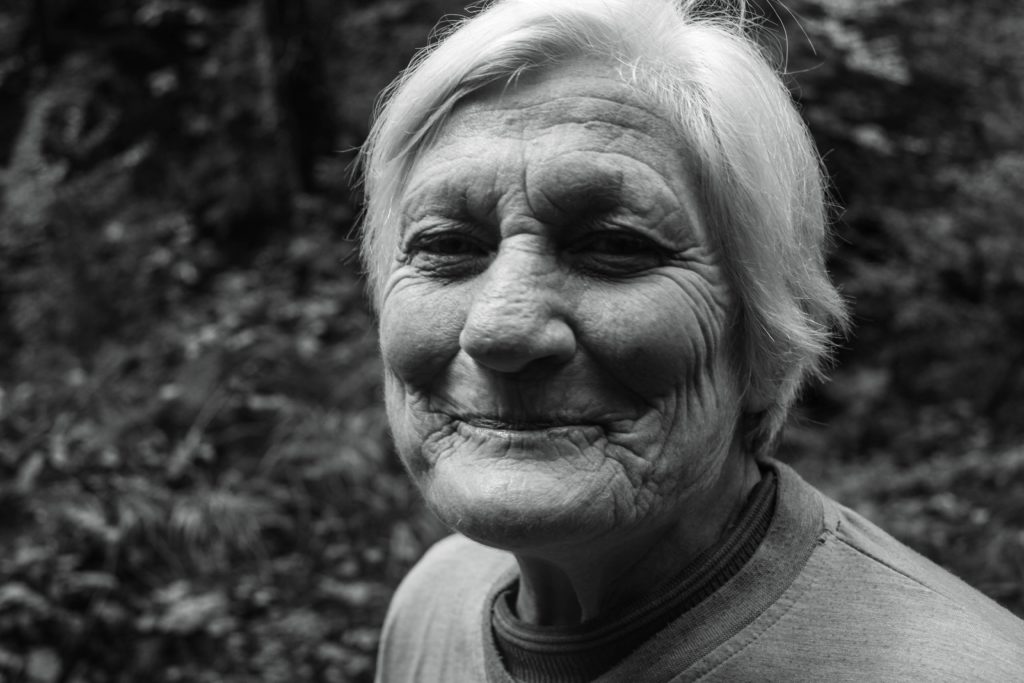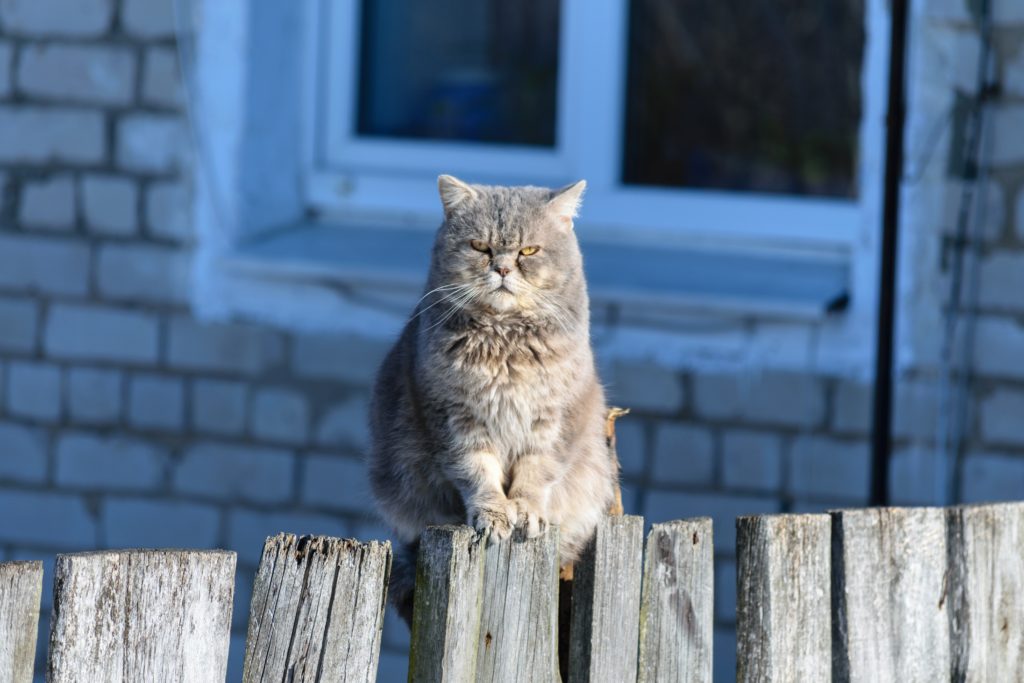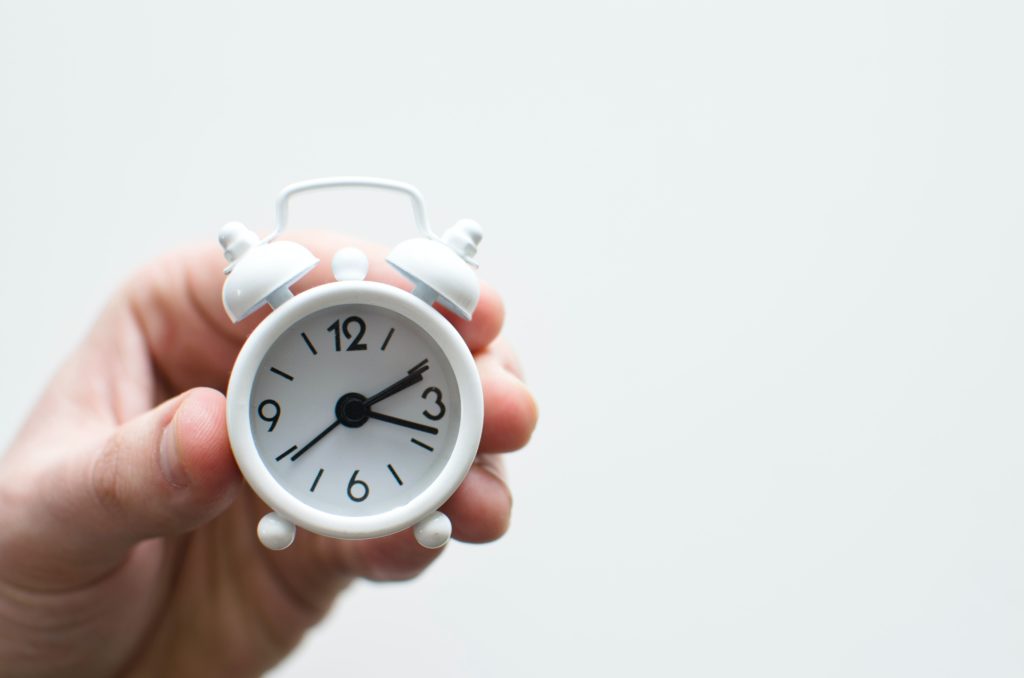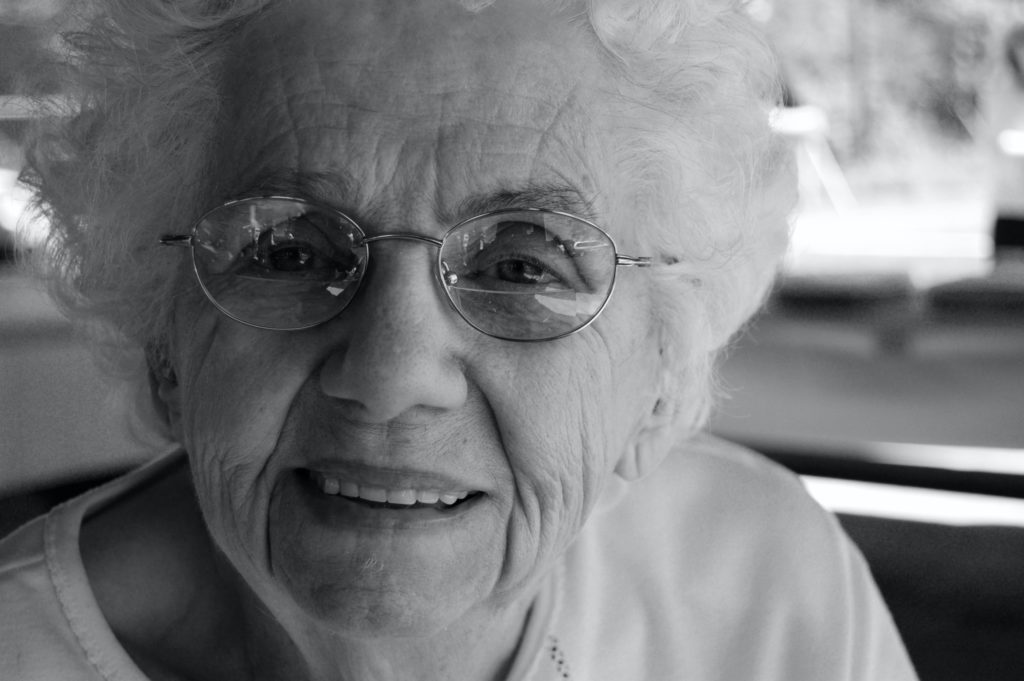How it Works
The science of multisensory stimulation
- Elevate Mood
- Resolve Conflict
- Offer Respite
- Restore Rhythms
- Manage Symptoms
Elevate Mood
Elevate Mood
Memory care research shows that reducing stress and frustration can improve memory in older adults, an all-natural memory tool called the relaxation response.
Research also shows that one of the benefits of guided imagery like Memory Lane TV is a reduction in anxiety and depression in older adults. Our positive, plot-free guided imagery is designed to evoke a sense of wonder and wellbeing using inspiring images, immersive video, mood-elevating music, and more.

Resolve Conflict
Resolve Conflict
The shock and grief of a new diagnosis. Confusion, fear, and disorientation. Struggles to express their needs and wants, anger at not being understood. These are all common behaviors of dementia and it is perfectly normal for people experiencing memory loss and their caregivers to find themselves in unproductive, negative feedback loops.
Current memory care research recommends reducing the use of psychotropic medications to manage dementia and anger, and Memory Lane TV is an all-natural way to restore calm and reconnect.

Offer Respite
Offer Respite
Research reveals that caregivers providing daily care and memory support report up to 20% more stress than other providers. We made sure the multisensory techniques used in Memory Lane TV work equally well when watched alone so caregivers can take the time they need to focus on other people, tasks, or their own personal needs.
You can take a moment for you, and when you are ready, take a moment to pause the program and share.

Restore Rhythms
Restore Rhythms
Our circadian rhythms keep our minds and bodies aligned with the ebb and flow of the day—awakening us in the morning, triggering hunger at mealtimes, making us drowsy in the evening, and lulling us to sleep. Even in the early stages of memory loss, these rhythms can become disrupted.
Memory Lane TV multisensory stimulation is timed to help create the right energy and activity level for the moment—naturally. When you press “play” on our Live Play guided imagery, the music, images, and aromas will always fit the time of day.

Manage Symptoms
Manage Symptoms
The last 50 years of memory care research show mindfulness is a powerful memory aid for seniors. When we are truly experiencing the present, we worry less about the past or the future and focus on fully experiencing right here, right now.
Every Memory Lane TV program is a journey into the joys of the present and research on mindfulness training and memory loss shows improvements in quality of life, physical wellbeing, and mental health—without additional medications. Whether you need to engage, redirect, or calm, Memory Lane TV’s integrative approach can create the moment you need.

Watch: Learn more about our sensory plan and how Memory Lane works
This short video will give you an overview of our programs and how we use multi sensory stimulation to help care partners manage life with someone living with memory loss and dementia.
Watch: How can Memory Lane elevate mood?
University of Wisconsin researchers found new non-pharmacological interventions to improve dementia patient and caregiver moods. Researchers within UW’s School of Pharmacy, in association with Generation Connect, found that music, videos and photos on tablets or television improved the mood of dementia patients and their caregivers. The study, which began in 2018, surveyed patients with dementia over more than 1,000 sessions and found that 93% of patients’ moods improved from negative to positive or stayed positive. Using technology, cinematic perception and using evidence based research on Multi sensory stimulation adapted to dementia, we created a series of very specific programs to help care partners elevate mood. Quizzes, nature relaxation, reminiscence therapy, appetite stimulation and positive imaging will contribute to help improve overall quality of life.
Watch: Using Memory Lane Tv to resolve conflict
The untoward consequences of caring for a family member with dementia are well documented in the research literature. Caregivers face elevated stress and are more likely to experience emotional distress relative to comparable non caregivers. Because some dementia caregivers fare better than others, researchers have sought to identify factors that predict the emotional toll of caregiving. We use evidence based technics and tools to help care partners resolve conflict through professional and well documented notions. Watch this short film to learn more.
Watch: Lowering anxiety and stress for everyone
The key to addressing behaviors related to stress and anxiety in someone with a dementia like Alzheimer’s is distraction or redirection. If the person you are taking care of is anxious or irritable, redirecting their attention and re-engaging them with another activity will help get them out of that rut. Memory lane Tv has created a variety of collection of films to do exactly that, through simple visual stimulation, reminiscence or simply by redirecting attention in a simple way.
Watch: Restoring daily rhythms with Memory Lane Tv
Studies have shown that some tools are effective in improving the stability of diurnal rhythms in dementia patients, although using Memory Lane alone may not improve rhythms in AD patients. However, when used in conjunction with melatonin and our olfactory stimulation kits, appears more effective than either therapeutic tools alone. Our films follow the circadian rhythm of the day and can help the person by learning giving clues on what time of the day it is, which makes the person living with dementia feel better, reassured and understand what time it is. If you use our 24/7 linear pre-program channel for example, at night, we use guided imagery and night scenes to induce a sense of calm. It helps people go back to sleep.
Watch: Soothe Sundown syndrome with our plot-free positive intervention
The causes of sundowning are not well understood. One possibility is that Alzheimer’s-related brain changes can affect a person’s “biological clock,” leading to confused sleep-wake cycles. This may result in agitation and other sundowning behaviors. Using techniques such as redirecting attention or creating a quieter and soothing environment can help. Memory Lane Tv is one of the tool you can use to address this symptom. we created a special collection of films, called medleys, that last 26minutes and that helps managing Sundown syndrome by redirecting the viewer’s attention to a quieter place.
Watch: Manage dementia symptoms through mindfulness and Yoga
The benefits of yoga and meditation for Alzheimer’s and dementia are multiple and far-reaching. While there is no cure for Alzheimer’s, research suggests that yoga and meditation may play a role in prevention and improve symptoms and quality of life for patients and their caregivers. We have produced a unique collection of Yoga videos specifically targeted for our population. These videos can be used also by caregivers and family members and will bring relief and help to manage a variety of symptoms.
Watch: Using the power of music and sound stimulation with Memory Lane Tv
Using Music as a therapeutic tool is well documented and evidence based through research. Memory lane Tv curated very specific music to adapt to every type of situation throughout the day. This video will show you how to optimize the use of music as you peruse the Memory Lane catalog.
Watch: Educate yourself with our caregiver channel
Our Caregiver channel is a very useful resource for training and education about dementia. In this section you can also find all the training videos to optimize your use of Memory Lane Tv.
Powered by Science
Powered by the latest scientific research into memory care.
Positive and person-centered.
Let Memory Lane TV transform your day when you press “play”.